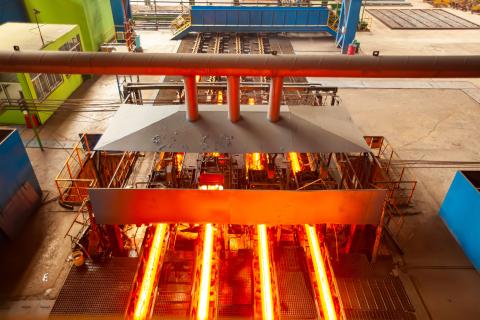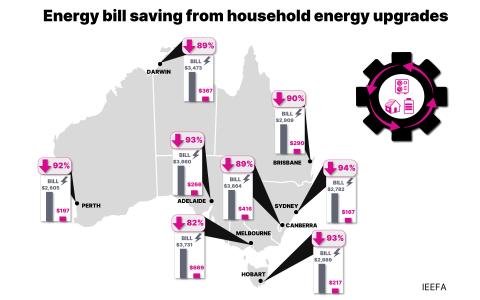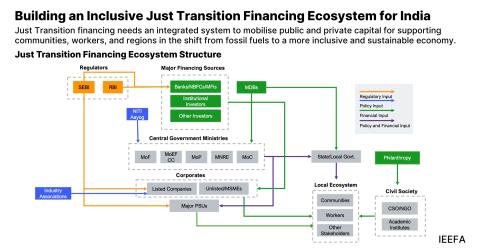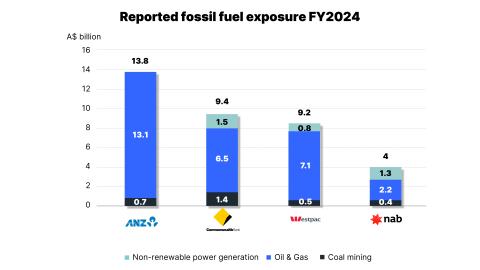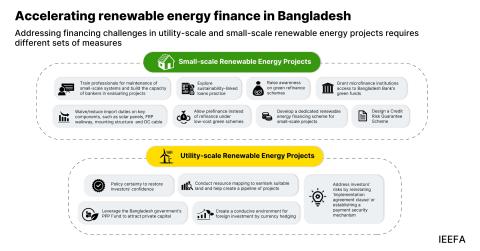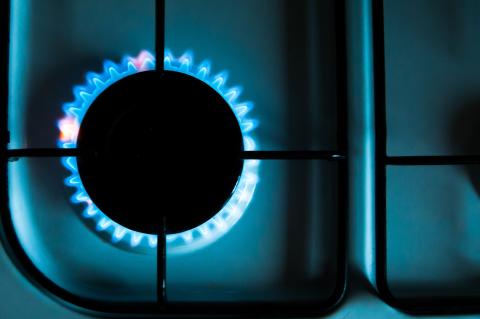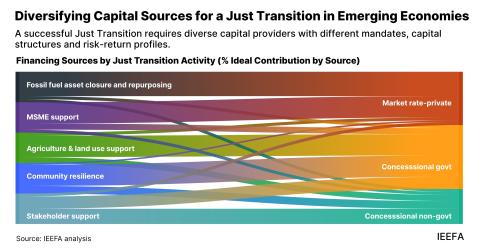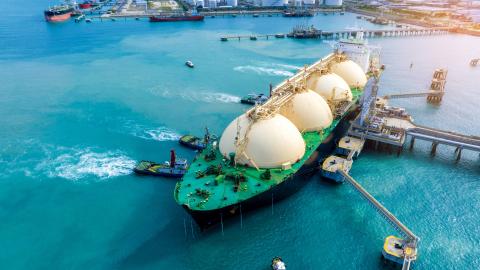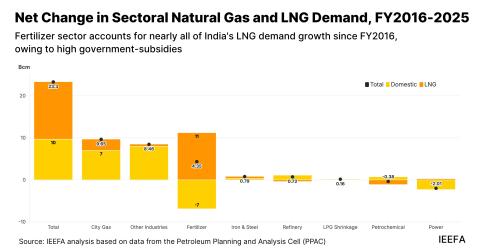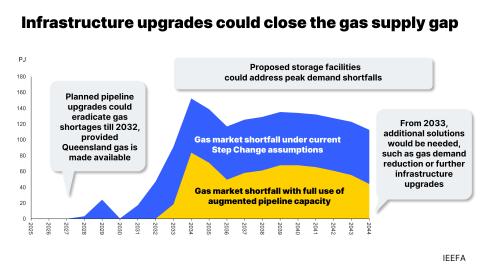IEEFA Australia: Escalating Financial Risk in Adani’s Abbot Point Coal Terminal
Oct. 2, 2017 (IEEFA) — New analysis by The Institute for Energy Economics and Financial Analysis (IEEFA) finds that Adani’s Abbot Point Coal Terminal is excessively leveraged, promises negative shareholders equity, and runs the risk of becoming a stranded asset if Adani’s proposed Carmichael mine does not get the A$1 billion Australian taxpayer subsidy it seeks.
The analysis, described in a report published today—“An Australian House of Cards: The Escalating Financial Risk in Adani’s Abbot Point Coal Terminal”—finds more broadly that Adani’s entire A$3.5 billion debt-funded “investment” in Australia is at grave risk.
The terminal is due for a $1.5bn debt refinancing next year and a cumulative debt refinancing of $2.11bn by 2020. Currently operating at just over 50% capacity, AAPCT needs the Carmichael mine to fill the gap created as its current take-or-pay contracts progressively expire.
“Securing this refinancing is going to be a real challenge, not the least because the port value has been tied to the success of the Carmichael coal mine proposal which is itself yet to secure funding and which the “Big Four” Australian banks have refused to touch,” said Tim Buckley, lead author of the report and IEEFA’s director of energy finance studies, Australasia.
“The potential for a loss of up to A$1.5bn on any decision to walk away from Carmichael mine and rail proposal, explains why the Adani Group has been so focused on securing Australian taxpayer money and royalty holidays to subsidise its loss-making ventures.”
“To the extent that can be gleaned from ASIC records, Adani’s entire mine, rail and port operation in Australia looks to be 100% debt financed and shareholders funds now tally an unprecedented, negative $458m combined. The value at stake for the Adani Group’s Carmichael mine proposal is far bigger than previously understood.”
Whilst Adani continues to search for overseas project funding, events have transpired that make the Carmichael project a greater financial risk than ever:
- Adani’s major proposed offtake coal customer, Adani Power Ltd’s 4.6GW import-coal power plant at Mundra in Gujarat, is financially distressed and its equity is for sale for just Rs1 (no buyers yet);
- India’s thermal coal imports have continued the downward trend of the last two years and are down 13% year-to-date in 2017 compared to the prior year;
- In light of new solar infrastructure projects delivering electricity at prices now 20% below many Indian thermal power plant tariffs, analysts see no import-coal demand recovery.
The A$2 billion AAPCT appears to have paid net zero tax over the past five years, a clear precedent that begs the question as to why the Australian government would lend $1 billion to a tax-haven business controlled by a foreign billionaire, why a royalty holiday is justified, and why water for such a project should be allocated away from Australian farmers.
Full report: “House of Cards: The Escalating Financial Risk of Adani’s Abbot Point Coal Terminal”
Contacts:
Tim Buckley (Australia) P: +61 408 102 127 E: [email protected]
Australian/India media: Brami Jegan P +61 448 276 945 E: [email protected]
U.S. media: Karl Cates P +1 (917) 439-8225 E: [email protected]
ABOUT IEEFA
IEEFA conducts research and analyses on financial and economic issues related to energy and the environment.



